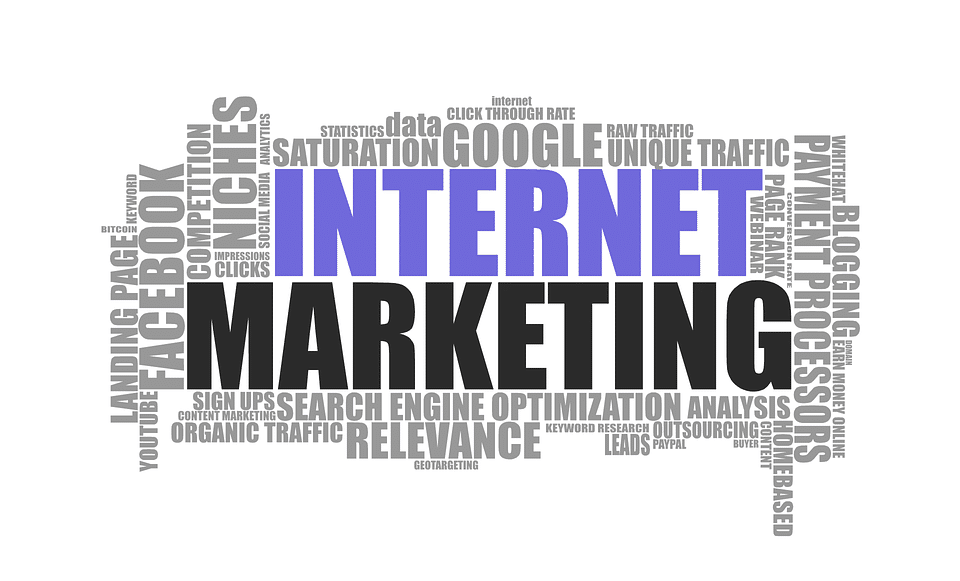DMP Marketing: How to Effectively Reach Your Target Audience in the Digital Age
Introduction to DMP Marketing
DMP Marketing stands for Data Management Platform Marketing, and it's the backbone of marketing in the digital age. Imagine a vault storing tons of data about customers—what they like, where they click, and how they shop. This vault is a Data Management Platform (DMP). Now, marketers like you can unlock this vault with the right key—smart strategy. With a DMP, you get laser-focused targeting, turning generic ads into personal invites that speak directly to what your audience loves. It's not about throwing your message into the digital winds and hoping it sticks; it's about using data to know where your audience hangs out and what whispers will make them turn their heads. Just remember, this powerful tool is all about the right message, to the right person, at the right time. That's DMP Marketing – smart, strategic, and super targeted.

Understanding Data Management Platforms (DMPs)
Data Management Platforms, or DMPs, are your secret weapon in the digital marketing battleground. They collect and organize data from a variety of sources – think websites, apps, and social media. Remember, we're talking about massive amounts of information that DMPs munch through to better understand your audience. Once they’ve gathered the data, these platforms categorize it into specific segments. It's like having a smart assistant dividing your customers based on their interests, behaviors, and countless other traits. So, when you launch your next campaign, you're not blindly throwing arrows hoping to hit the bullseye. With DMPs, you know exactly who you're targeting, making it more likely your message lands with a resounding thud right in the middle of the target. Plus, they keep learning and adapting, getting smarter about your audience over time. That means you get to be more precise with your marketing strategies, saving time, money, and resources. Just remember, while DMPs are powerful, they’re tools in your arsenal and work best when you've got a sharp strategy to pair them with.
The Role of DMPs in Modern Marketing Strategies
DMPs, or Data Management Platforms, are the backbone of data-driven marketing. These platforms collect and manage extensive datasets to help you understand and reach your target audience effectively. They analyze consumer behaviors across the web, giving insights that power smarter ad targeting. With a DMP, you can segment audiences based on actual interactions instead of vague demographics, ensuring your marketing campaigns resonate with the right people. The role of DMPs in modern marketing is crucial because they support personalized and timely campaigns that can drive engagement and conversions. They also help in maximizing your ad spend by reducing waste on poorly targeted campaigns. Simply put, incorporating a DMP into your marketing strategy means you're not just shooting arrows in the dark; you're hitting the bullseye by delivering the right message to the right audience at the right time.
Identifying Your Target Audience with DMPs
When it comes to digital marketing, knowing who you're talking to is crucial. Picture DMPs, or Data Management Platforms, as savvy sidekicks helping you pinpoint your ideal customers. These platforms gather and analyze heaps of data to flesh out your audience profile. It's like detective work, but for marketing. You'll look at demographics, interests, and behaviors to figure out who is most likely to be into what you're selling. And it's not just guesswork; DMPs deliver real, data-driven insights that help you tailor your messages so they strike a chord with your target crowd. Remember, the sharper your audience targeting, the better your chance of hitting the marketing bullseye.
Gathering and Analyzing Data for Precision Marketing
In this digital era, gathering and analyzing data is like setting your GPS before a road trip. You need to know your consumer's habits, preferences, and behaviors to map out the most effective marketing path. Think of this as the groundwork for precision marketing. Harness data from various sources: website analytics, social media engagement, and customer feedback loops are excellent starting points. Then get your hands dirty with analysis; it's about spotting patterns, understanding the 'who', 'what', and 'why' behind the numbers. Tools like Google Analytics are your best friends here—they help you track the success of your campaigns and learn about your audience. Remember, every nugget of data helps you fine-tune your marketing messages so they hit the bullseye every time.
Creating Effective Personalized Advertisement Campaigns
To nail personalized advertisement campaigns, think of your audience as friends you truly get. You want to chat them up with messages that hit home. First, gather the data - what they click, buy, or skip on. Then, craft your ads to reflect what you know, like suggesting running gear to someone who just bought sneakers. Remember not to overdo it; no one likes feeling stalked. Keep it cool – show you know them without being creepy. And one last thing, make sure your ads look good on any device. With the right touch, personalizing can really make your marketing efforts shine.
Integrating DMP Marketing with Multi-Channel Campaigns
If you want to hit the bullseye with your marketing, think about DMP marketing like an ace archer with arrows flying across different channels. DMP stands for Data Management Platform, and it's your secret weapon to understand your audience like the back of your hand. To get your message across, blend DMP with multi-channel campaigns, which means you're not just shouting in a crowded market; you're smartly whispering into the ears of those who want to listen.
Here's the game plan: use the DMP's data to pick out folks who are already looking for what you're selling. Then, target them where they hang out – could be email, social media, mobile apps, or websites. The point is, each channel you choose is like a different arrow in your quiver, and when you launch them together, they have a better chance of hitting that bullseye – which is your customer's attention, by the way. Make these different channels work as a team, and you'll see how your message can make an impact no matter where your audience is.
Best Practices for DMP Marketing Success
To nail DMP marketing, you've got to play by the rules – the best practices, that is. First, know your audience inside out. Gather data that tells you not just who they are, but also how they behave online. Next, keep your data clean and organized. A messy database is like a cluttered desk – it slows you down. Then, make sure your messages hit the mark. That means tailoring content to different segments for a personal touch. And hey, stay on your toes with privacy laws. You've got to be above board with how you handle data. Finally, measure, analyze, and tweak. Look at what's working and what's not, then adjust your strategy accordingly. In DMP marketing, staying adaptable is the name of the game.
Measuring the Impact of Your DMP Marketing Efforts
Tracking the success of your DMP marketing is non-negotiable. You need to know if your time and dollars are giving you a good bang for your buck. Key performance indicators (KPIs) are your best friends here. Look at website traffic, conversion rates, and the all-important return on investment (ROI). These numbers paint a clear picture of how well your strategies are working. If the numbers are up, you're on the right track. If they're not, it's time to tweak your approach. Remember, a nimble strategy wins the race in digital marketing.
Future Predictions and Evolutions in DMP Marketing
Expect DMP marketing to become smarter and more intuitive. Machine learning algorithms will refine data analysis, helping marketers predict customer behavior with higher accuracy. Personalization will reach new heights, tailoring content not just to groups, but to individuals at specific moments in their journey. Integration with emerging technologies like AR and VR is on the horizon, creating immersive ads that capture attention like never before. As privacy concerns grow, DMPs will shift towards more transparent data practices, ensuring consumers feel safe and respected. These changes mean that staying agile and informed is essential for marketers who want to stay ahead of the curve.


